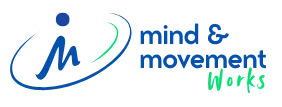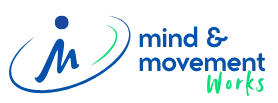Help Your Child Move Better
Gentle, Brain-Based Learning for Children with Special Needs
Move Beyond Limitations to New Possibilities
As parents, we see the brilliance in our children every day—the small victories, the incredible determination, and the unique ways they navigate the world. But it’s not always easy, especially when others fail to see what we see. When your child faces physical, cognitive, or developmental challenges, it’s natural to feel uncertain about how to help them thrive. You may be wondering:
-
"Why isn't my child meeting developmental milestones?"
-
"What can I do to help my child move better?"
-
"Is it too late for my child to make progress?"
The good news is that your child's brain is designed to adapt, learn, and grow—no matter their age or diagnosis. With the right support and conditions, extraordinary changes are possible.
Ready to Help Your Child Thrive?
Parenting a child with special needs can feel overwhelming, but there are playful ways to support your child’s growth and development.
Start today with my free resource: The Joy Kit: 10 Activities for Playful Connection & Joyful Movement.
This downloadable guide will help you:
-
Strengthen your bond with your child
-
Support their brain and body development
-
Bring more ease, laughter, and joy into daily life
Download The Joy Kit Now and discover fun, brain-based ways to connect with your child.
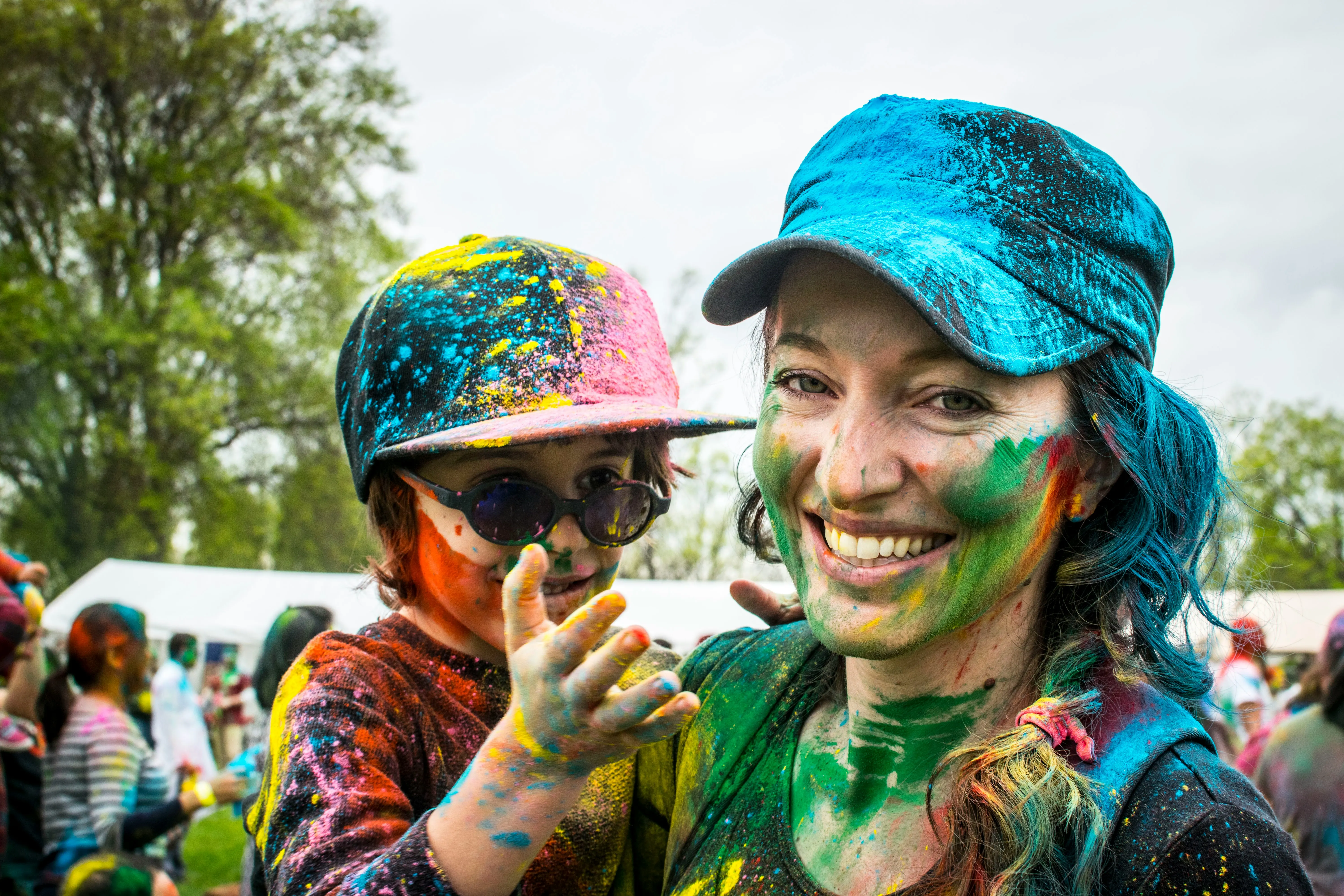
From "Fixing" to Connecting"
When we discover that something is "wrong" with our child, it’s natural to want to fix it. We focus on what they can’t do, what seems to be wrong, or how to stop behaviors that don’t seem “normal.” And so, we try approaches like:
-
Putting them in standing when we want them to stand.
-
Guiding them to walk when we want them to walk.
-
Propping them up to sit when we want them to sit.
I know this approach well—because I used to do it, too. Early in my work with children, before I understood how the brain learns through movement, I would try to get kids to do things they couldn't yet do. I thought that with enough repetition and effort, they would eventually "get it."
But I found little effectiveness. Children sometimes became frustrated, progress was slow or nonexistent, and honestly, I became frustrated too. I found myself questioning why this approach wasn't working.
That's when I learned about the essentials the brain needs to learn and grow. I discovered that there's another way.
Instead of trying to fix what appears to be "wrong," we can focus on connecting with what's already possible. When we meet children where they are and give their brain the right conditions to learn, extraordinary things can happen.
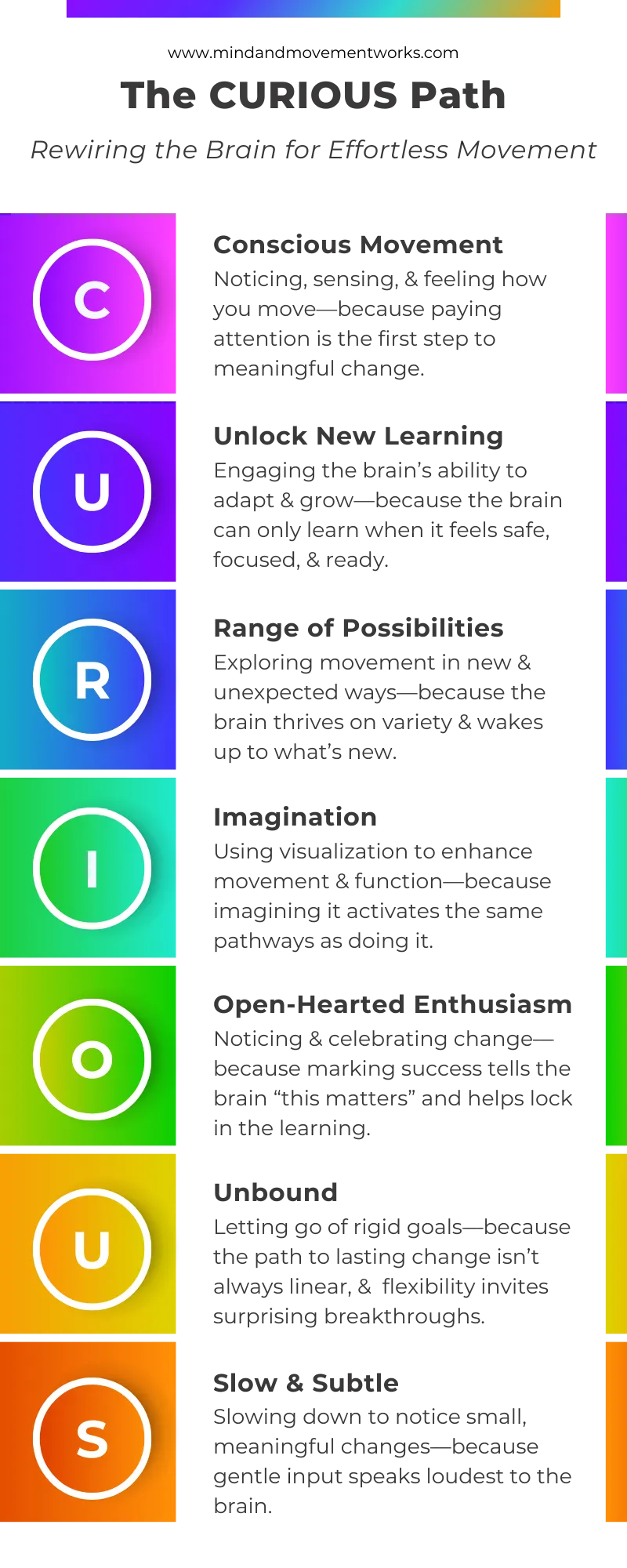
The CURIOUS Path:
A Gentle, Brain-Centered Approach
Rather than focusing on "fixing" problems, I believe in creating opportunities for connection, exploration, and growth. This philosophy is at the heart of my work with children—and it’s why I developed The CURIOUS Path.
The CURIOUS Path is rooted in the principles of ABM NeuroMovement®. This playful, brain-centered approach is designed to support your child’s development by creating the ideal conditions for learning and change.
Rather than pushing your child to "fix" a perceived problem, The CURIOUS Path provides a safe and supportive environment where your child can:
-
Engage their natural curiosity.
-
Learn through gentle, playful movement.
-
Build deeper connection and joyful interaction.
Through this process, we create the conditions for your child's brain to unlock its potential, opening the door to new possibilities for movement, learning, and grown.
Your Child is Brilliant
It’s all too common to look at children with cognitive or physical challenges and assume they lack intelligence. But nothing could be further from the truth.
Your child has already overcome immense obstacles. Think about the pain, discomfort, and challenges they’ve navigated just to accomplish things we often take for granted. That takes incredible determination, ingenuity, and resilience.
That’s brilliance.
The brain is designed to take in sensory information, make sense of it, and create solutions. In a healthy brain, this happens naturally and efficiently. But when the brain is affected by trauma or disease, its ability to respond to sensory input becomes disrupted, which can lead to challenges in movement, thinking, and behavior.
By working with the brain through gentle, brain-centered learning, we can help quiet the noise caused by injury or trauma, build new neural connections, and unlock new possibilities. The results can be extraordinary.
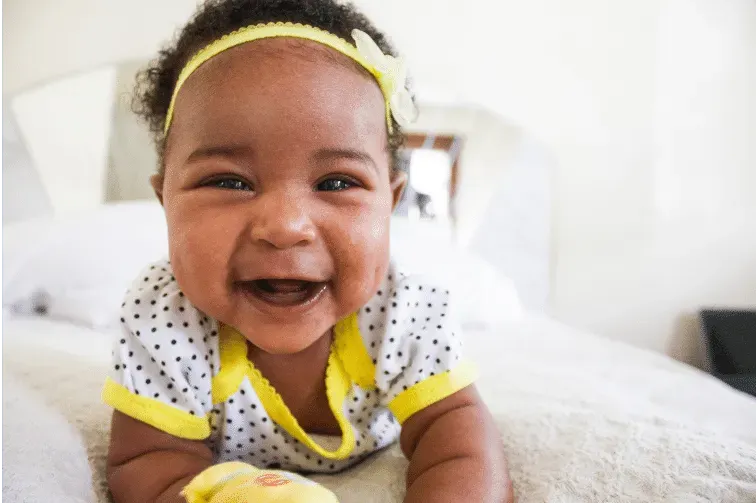
It's Never Too Early to Start
Babies’ brains develop new connections at an astounding rate in the first months and years of life. This time of rapid growth is a unique opportunity to help their brain learn and create healthy patterns of movement.
If your child experienced birth trauma, brain injury, a premature delivery, or spent time in the NICU, you may feel worried about their developmental future. You’re not alone—many parents share these concerns.
The good news is that their brain is naturally designed to adapt and grow, and starting early can help lay the foundation for new possibilities.
The earlier we start, the easier it is, because an infant’s brain is especially ready to learn and change.
By creating the right conditions for their brain to work, we can support them in discovering new ways to move, learn, and thrive.
It's Never Too Late to Begin
The brain has the capacity to learn and change at any age. While it’s easier to create new patterns when we’re young, I’ve seen remarkable transformations in individuals of all ages.
As we get older, our movement patterns and habits become more ingrained, which means it can take a little longer to create new connections. But the brain’s ability to adapt never goes away—it just needs the right conditions to unlock its potential.
Every brain is unique, and every individual responds in their own way. While results may vary, I’ve seen older children (and adults) discover new possibilities they never thought were possible.
It’s never too late to help your child grow, learn, and thrive.
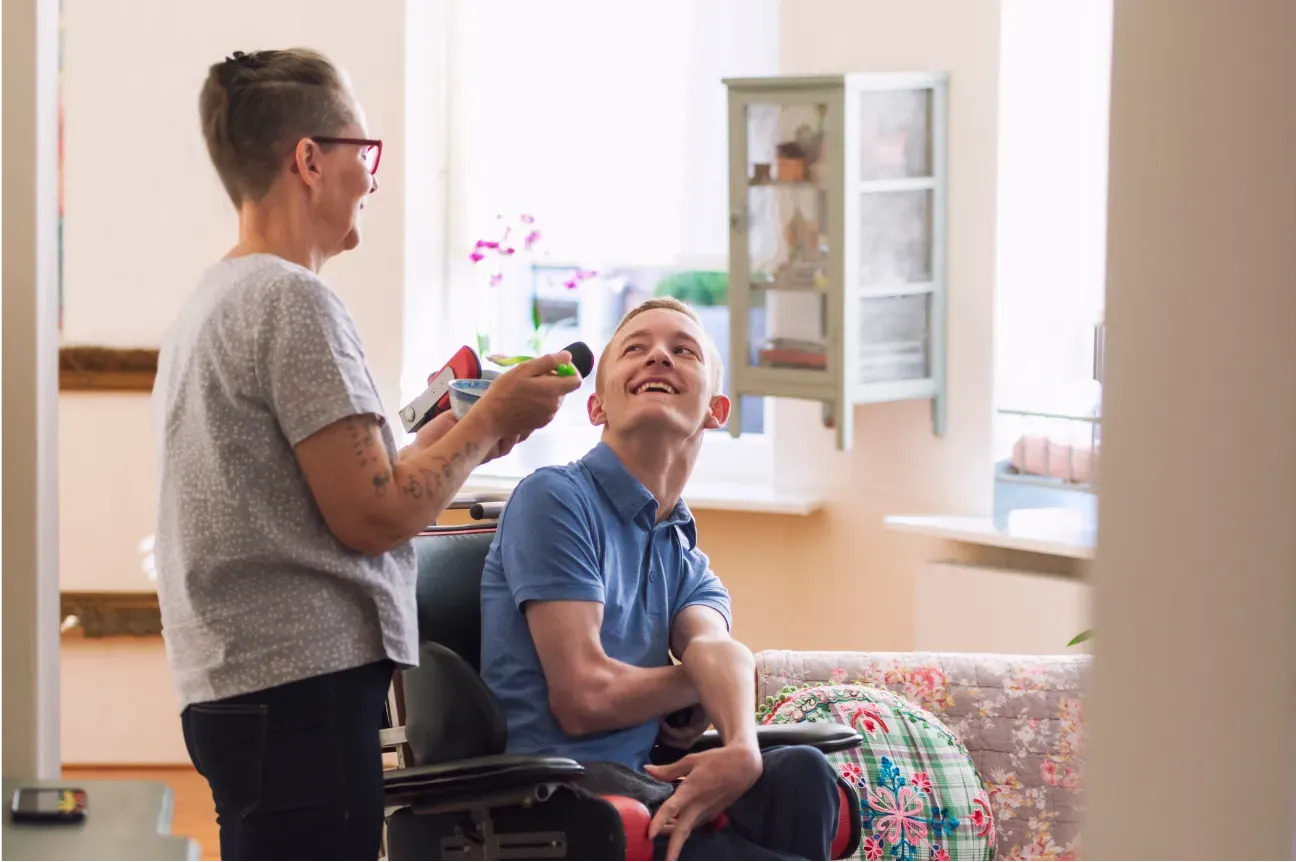
Want to Start Building Connection with Your Child Today?
Making the shift from fixing to connecting begins with small, joyful steps.
That’s why I created The Joy Kit: 10 Activities for Playful Connection & Joyful Movement. This free resource offers fun, easy ways to engage with your child while supporting their brain and body development.
Download The Joy Kit now and discover:
-
Playful activities to strengthen your bond with your child.
-
Gentle, movement-based games that supprt growth and learning.
-
Tools to help you bring more joy into your daily routines.
Move from the Impossible to the Possible
Children are not defined by their diagnosis or limited by their prognosis.
Every child has the potential to discover new possibilities, and their brain has the capacity to create profound changes when provided the right conditions.
Here are just a few of the challenges I work with:
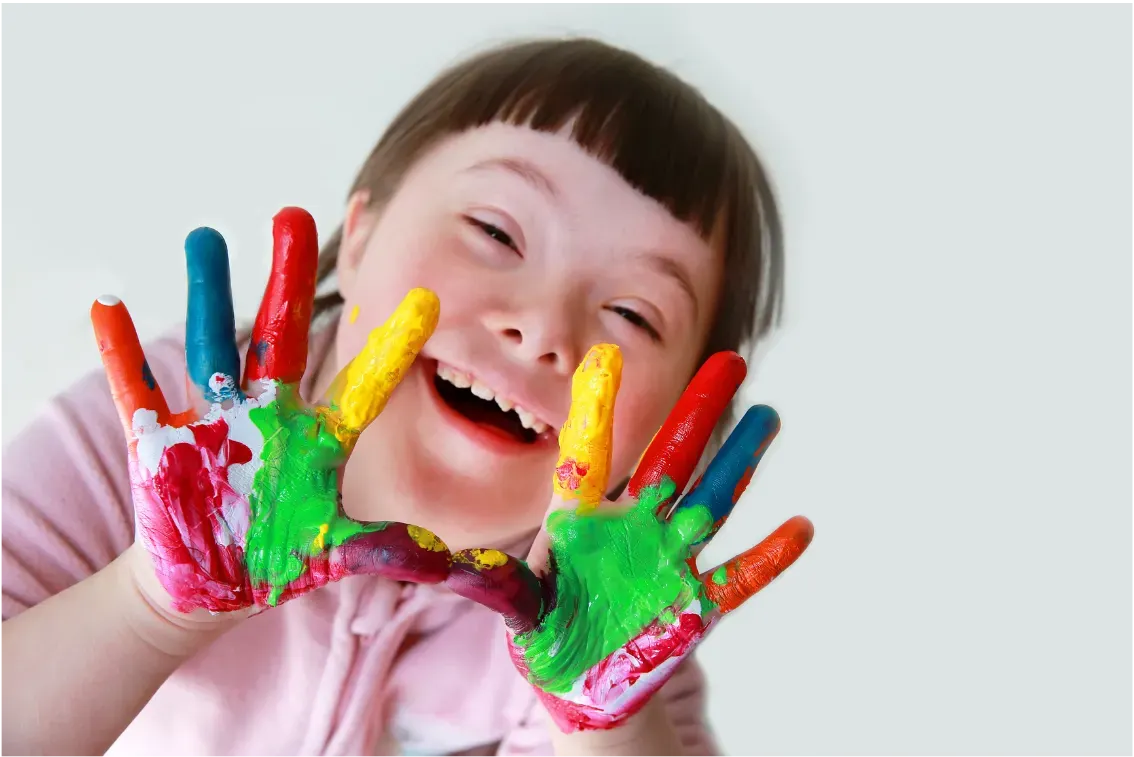
Developmental Delays
Every child progresses at their own pace. Gentle, brain-based movement creates opportunities for growth without forcing the child to meet traditional timelines.
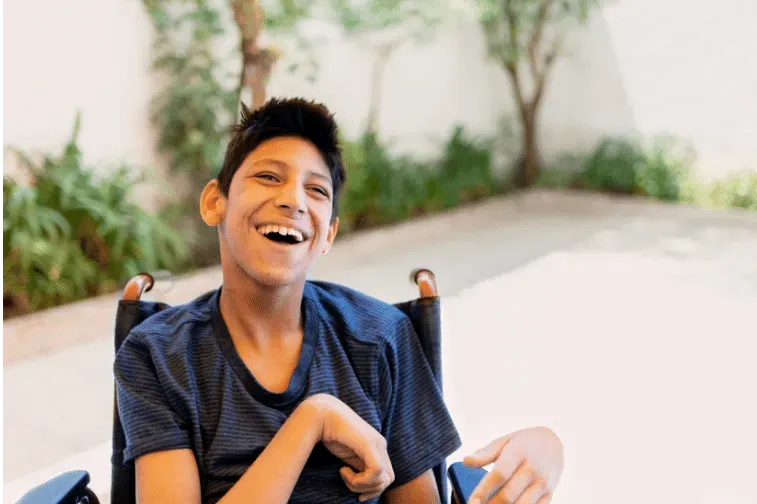
Cerebral Palsy
CP manifests itself in different ways but affects a person's muscle tone, movement, posture, and balance. Children with CP can experience improvements in flexibility, coordination, and even speech through new movement patterns.
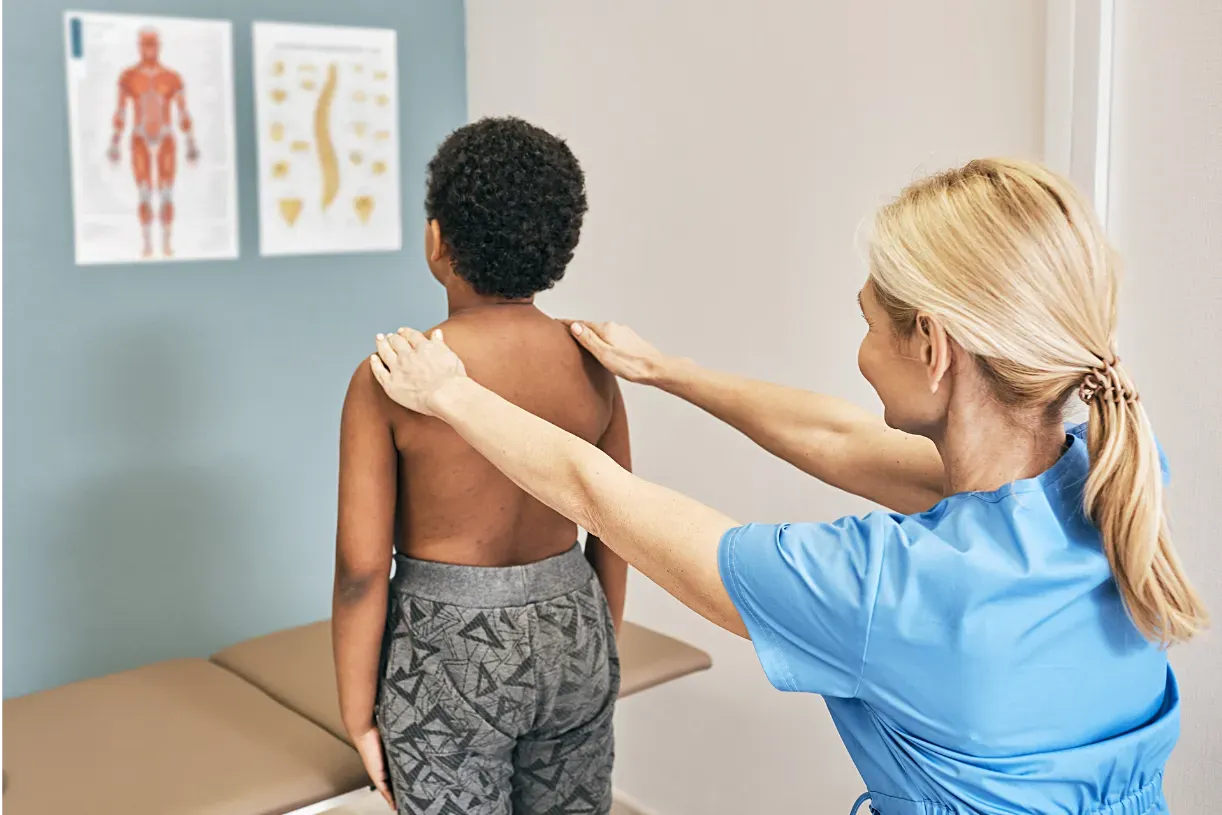
Scoliosis
Severe scoliosis can be painful and disabling, often causing breathing difficulty and heart and lung problems in the most severe cases. Gentle movement can reduce discomfort, improve mobility, and support easier breathing.
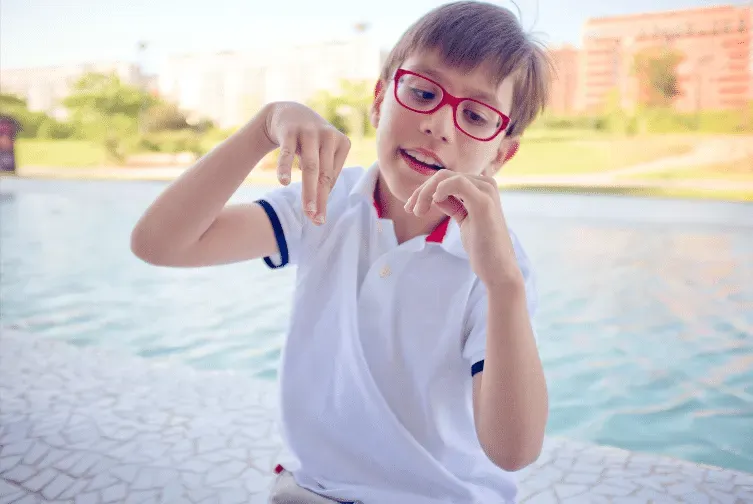
TBI/Stroke
Injury to the brain may be minimal or severe and affects the individual in a myriad of ways, often causing developmental delays or regression. The brain's plasticity allows it to reorganize and regain lost functions through the creation of new or repaired neural connections.
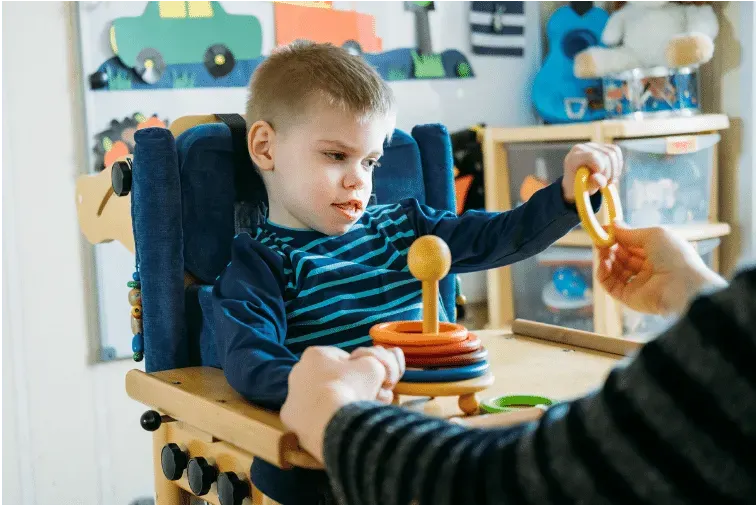
Genetic Disorders
Every diagnosis presents unique developmental and learning challenges. By focusing on what your child can already do, we can create conditions for new possibilities and higher levels of functioning.
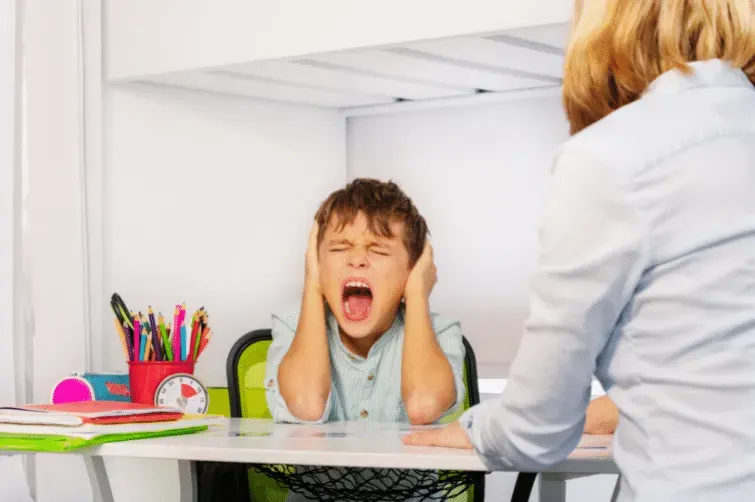
Autism Spectrum Disorder
Children with ASD may have challenges organizing their movement, thinking, and emotions. Gentle movement-based learning helps children on the spectrum process sensory input and regulate emotions more effectively.
Take the First Step
Whether your child is just starting out or further along in their journey, the brain is always capable of growth and transformation.
With The CURIOUS Path, we create the conditions for your child to explore, learn, and thrive. If you’re ready to move beyond limitations and discover new possibilities, I’m here to help.
Contact Me Today to learn how brain-centered learning can support your child’s growth and well-being.
© 2025 mindandmovementworks.com
All Rights Reserved.
